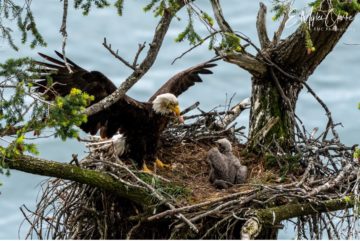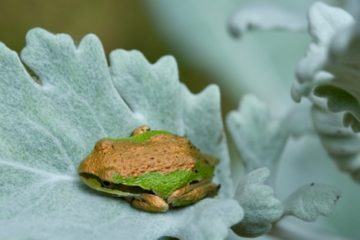by David Greer

On the islands of the Salish Sea, spring is often interrupted by the final roars of winter’s lion. Firs and cedars that usually withstand storm winds from the west or south may break when a rare mass of Arctic air brings with it a mean gale from the north.
In a rural community, branches falling on wires can trigger power outages lasting hours or days. When that happens, the ancient woodstove takes over from the idled electric heat pump, while oil lamps brought out of the closet cast a warm and flickering light on the novel that has been waiting for just such an occasion. Sure, your iPhone may still have some juice left, but you’ve no idea whether the lights will be out for hours or days. What better excuse to bury yourself in a good book under a cozy woolen Hudson’s Bay blanket?
No power also means no water from the pump-driven dug well, but fortunately you had the presence of mind not to tear down the old outhouse from the cabin’s earliest days when indoor plumbing was a luxury enjoyed by few on these remote islands. As long as you remember to gently relocate any yellowjacket queens wintering under the toilet seat, there’s a certain pleasure to sitting in a privy overlooking the rainforest in the gloaming, the more so if you remembered to replace the empty toilet paper roll after the last power outage. On really stormy nights, you might even hear the waves crashing on the distant beach. Read more »

